第168章
The duc d'Aiguillon brings an order for the immediate departure of madame du Barry--The king's remarks recapitulated--The countess holds a privy council--Letter to madame de Mirepoix and the ducs de Cosse and d'Aiguillon--Night of departure--Ruel--Visit from madame de ForcalquierI said I did not expect the duc d'Aiguillon; and the grief which was spread over his features, and the large tears which stood in his eyes, persuaded me but too plainly that all hope was at an end.
"Is the king dead?" cried I, in a stifled voice.
"No, madam," replied he, "Louis XV still lives, nor is it by any means certain that the misfortune you apprehend is in store for us.""He sends me from him, then," exclaimed I, with a convulsive cry, "and my enemies have triumphed.""His majesty is but of human nature, madam," replied the duke;"he feels himself dangerously ill, dreads the future, and believes that he owes his people a sort of reparation for past errors.""How, my lord duke," interrupted I, "this grave language in your lips--but no matter. Inform me only at whose desire you state these melancholy facts; speak, I am prepared for your mission, be it what it may.""You shall hear everything, madam," replied the duke, leading me to an arm-chair. I seated myself; my sisters- in-law, my niece, and comte Jean stood around me, eagerly waiting the duke's communication. "A few hours after you had been removed from his chamber, the king inquired of the princess Adelaide whether it were generally known at Paris that he had the small-pox. The princess replied in the affirmative, adding:
"'The archbishop of Paris was here twice during yesterday to inquire after you.'
"'Yet I belong more properly to the diocese of Chartres,' returned the king, 'and surely M. de Fleury would not interest himself less about me than M. de Beaumont.'
"'They are both truly anxious about you, my dearest father, and if you would only see them--'
"'No, no,' answered Louis XV; 'they must not be taken from the duties of their respective dioceses; besides, in case of need, Ihave my grand almoner.'
"Madame Adelaide did not venture to urge the matter further just then, and, after a short interval of silence, a message was brought from you, inquiring whether you could see the king, to which he himself replied, that he felt inclined to sleep, and would rather not see any person that night. I was in the chamber, and he very shortly called me to him, and said:
"'Duc d'Aiguillon, I have the small-pox; and you are aware that there is a sort of etiquette in my family which enjoins my immediately discharging my duties as a Christian.'
"'Yes, sire, if the malady wore a serious aspect; but in your case--'
"'May God grant,' replied he, 'that my disorder be not dangerous;however, it may become so, if it is as yet harmless, and I would fain die as a believer rather than an infidel. I have been a great sinner, doubtless; but I have ever observed Lent with a most scrupulous exactitude. I have caused more than a hundred thousand masses to be said for the repose of unhappy souls; I have respected the clergy, and punished the authors of all impious works, so that I flatter myself I have not been a very bad Christian.'
"I listened to his discourse with a heavy heart, yet I still strove to reassure the king respecting his health, of which, Iassured him, there was not the slightest doubt.
"'There is one sacrifice,' said the king, in a low and hurried tone, 'that my daughter Louise, her sisters, and the clergy, will not be long in exacting from me in the name of etiquette. Irecollect the scene of Metz, and it would be highly disagreeable to me to have it repeated at Versailles; let us, therefore, take our precautions in time to prevent it. Tell the duchesse d'Aiguillon that she will oblige me by taking the comtesse du Barry to pass two or three days with her at Ruel.'
"'How, sire!' exclaimed I, 'send your dearest friend from you at a time when you most require her cares?'
"'I do not send her away,' answered the king, with mournful tenderness, 'I but yield to present necessity; let her submit as she values my happiness, and say to her, that I hope and believe her absence will be very short.'"The duke here ceased his recital, which fully confirmed all my previous anticipations. My female relatives sobbed aloud, while comte Jean, compressing his lips, endeavoured to assume that firmness he did not really possess. By a violent effort I forced myself to assume a sort of resignation.
"Am I required to depart immediately?" inquired I.